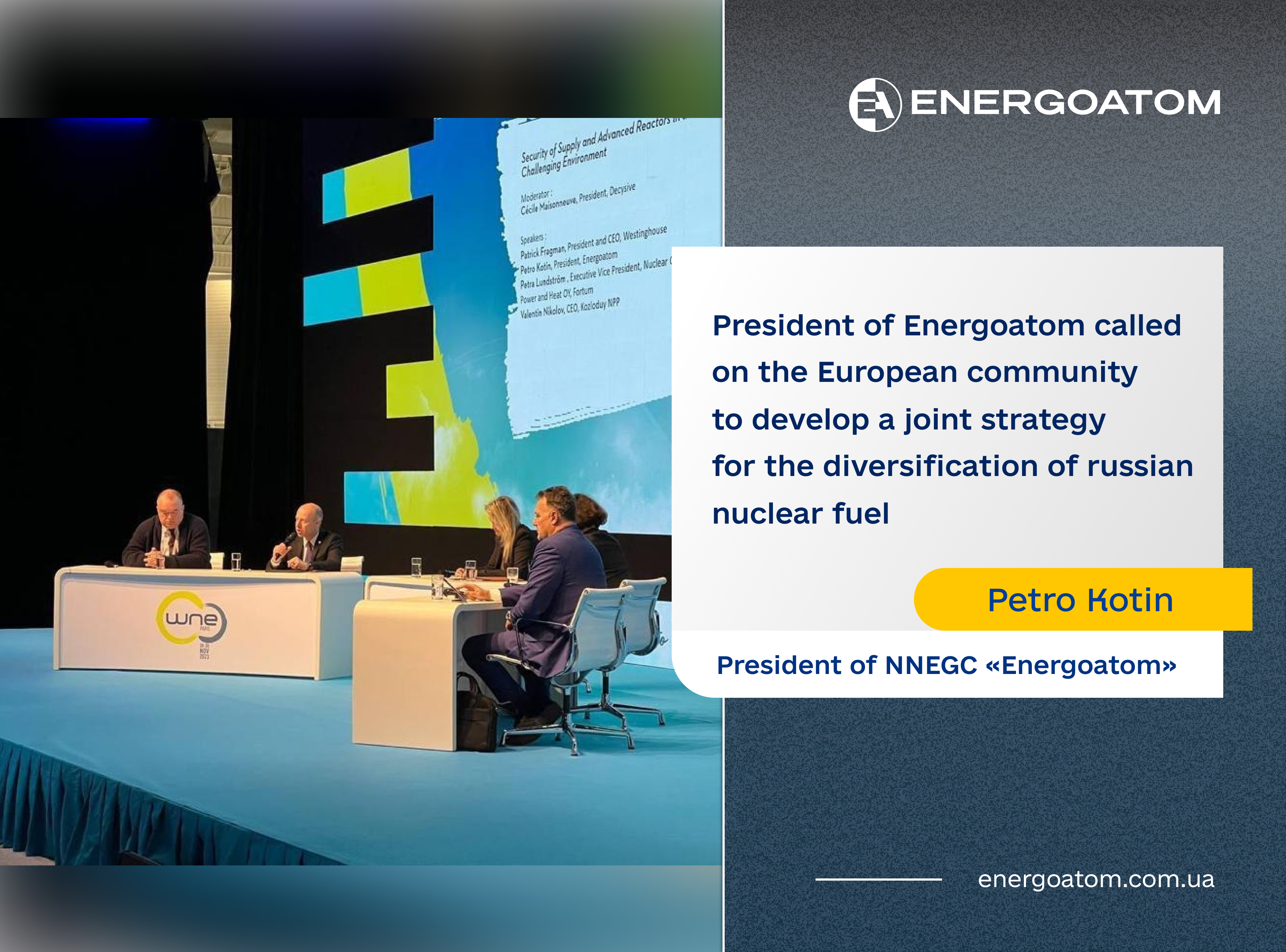Currently, russia has several access points to the European Union in order to maintain its share of the nuclear fuel market, in particular at the operating VVER reactors.

"The EU member states have fifteen VVER-440 reactors and four VVER-1000 reactors. The main area of dependence on russia is the nuclear fuel supply. American Westinghouse fuel can be an alternative to it. It is proven and safe," said Petro Kotin.
According to NNEGC President, Bulgaria and the Czech Republic have already declared their intention to stop fuel supplies from russia. Sweden also unilaterally announced the termination of cooperation with rosatom.
Energoatom, together with the relevant structures of Slovakia, the Czech Republic, Finland, Hungary and other countries, is working with Westinghouse on the fastest possible deployment of alternative fuel supplies.
"Within the Horizon Euratom program, the project of accelerated introduction of alternative fuel, led by Westinghouse, is being implemented. Its goal is to complete the licensing of fuel for VVER-440 reactors in Europe by 2026. If all European countries switch to alternative fuel for this type of reactors, russia will lose at least $2-2.5 billion in revenue over the next 5 years," Petro Kotin stressed.
As well as supplying fuel, rosatom provides services for uranium enrichment, spent fuel processing, repair and maintenance of nuclear power plants in the EU.
"To overcome this dependence, it is important to assess the degree of dependence of European countries and develop a joint diversification strategy. It is important that all European countries join their efforts together with Ukraine and the existing EU tools," said President of Energoatom.
Petro Kotin added that the best way to overcome the energy dependence of European countries on russia is to make amendments to the EU directives, which will allow the European Commission to centrally prohibit the use of technologies of "unfriendly" countries.
